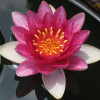How to Make the Most Out of Disk Cleanup

Every Windows user knows that it's important to perform regular PC maintenance. Without it even the fastest and the most responsive computer will become sluggish and annoying. When your computer becomes slow, the first thing you should do is perform disk cleanup - a process that removes unnecessary files from your hard drive. It will not only help you free up valuable disk space, but will also let your operating system find things faster and improve general PC speed.
Mac users are not as diligent because, to be fair, Macs are a lot more efficient than Windows PCs in terms of performance. But even Apple computers need some disk cleanup every now and again.
Regular disk cleanup is pretty easy to perform. But if you want to achieve the best results, you should do it properly and use some advanced techniques. Here are some tips that will help you make the most out of disk cleanup.
Delete junk files
The first thing you should do when you are cleaning up your hard drive is delete junk files - various temporary files that got left behind by your browser and operating system, plus the contents of your Recycle Bin. These temporary files can take up gigabytes of disk space with you none the wiser. Luckily, it's easy to delete them because Windows has a built in disk cleanup tool. Here is how to use it:
- Click on the Start button and type disk cleanup in the search box
- The top search result should be the disk cleaner tool. Select it and launch it
- Now select the disks you want to cleanup and click on Analyze
- When the analysis is complete, run the cleanup
This will rid your computer of junk files.
If you are on a Mac, then you can use a program like MacKeeper to clean and maintain your Mac. It will not only cleanup your Mac, but will also make sure there are no duplicate files and no redundant programs that clutter your Mac.
Delete duplicate files
Even though your computer is now free of system and browser clutter, there is still a lot you can do to free up disk space. The best way to do it without having to delete or move any of your important stuff is to find duplicate files. While you can do it manually, it's a lot better to use a free duplicate file finder like Fast Duplicate File Finder. Duplicate finder software will quickly detect all duplicate files across your hard drive and offer you to delete useless copies. An average computer has quite a lot of duplicates, which means that you can recover a lot of disk space.
Move large files and folders
If you have a lot of movies, photos and music files stored on your hard drive, then you shouldn't be surprised if you start running out of disk space. This problem is easy to solve, though - all you need to do is move them to an external hard drive. But what to do if something is eating up your disk space and you have no idea what it is? Use a program like Folder Size to check out the size of files and folders on your computer. You'll immediately see your largest files and folders. And once you find the culprit, you will be able to either move or delete it.
These simple tips will help you make the most out of disk cleanup and have a well-organized, fast PC.





